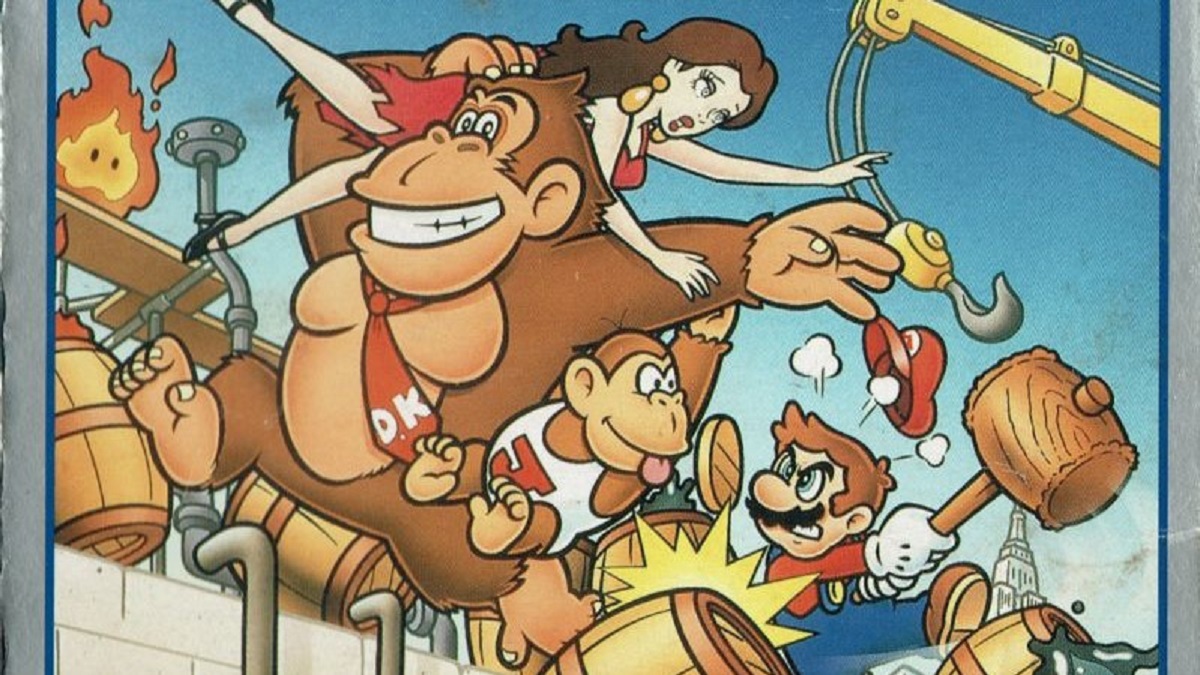Past the kill screen
Do you know what the best Mario game on the Game Boy is? No, it’s not Super Mario Land 2: 6 Golden Coins. No, it’s not Dr. Mario. Alleyway? No. What? Now you’re just making things up. Listen, shush. Stop making me regret asking you to play this guessing game. The answer is Donkey Kong.
At this point, Donkey Kong might be the Game Boy’s worst-kept secret. At the time of its release in 1994, I didn’t hear much about it. The fact that it’s just called Donkey Kong makes it sound like a port of the original arcade title, and it seems willing to keep that illusion going. There was also a push to make it the poster child of the Super Game Boy, which seemed to further muddy the waters. But if you took a chance on it, you’d find that it’s not only a terrific game in its own right, it’s one of the best games on Nintendo’s brick-like handheld.
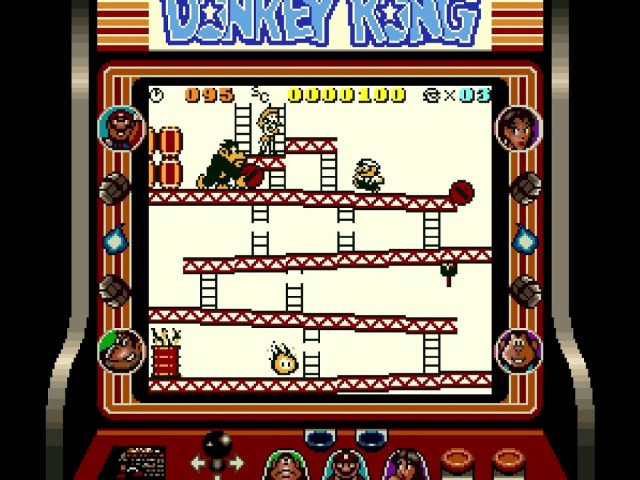
Communication breakdown
The best and worst part about Donkey Kong on Game Boy is how unwilling it is to explain itself. When you start up the game, you’re dropped into the familiar construction site of the arcade title. The eponymous Kong stands atop the girders, throwing barrels in your general direction. The graphics, sound, and music all harken back to the original title.
If you take the time to experiment with the controls, you might learn that Mario has quite a few new tricks up his sleeve, but there’s no indication that you should (assuming you didn’t read the instruction manual while eating Pizza Hut with your mom on the way home.) Donkey Kong then continues this illusion through four stages of arcade action before it finally plays its hand. Pauline is snatched from Mario’s grasp, and Donkey Kong takes off through about a bajillion more stages.
You may be wondering how you can stretch the arcade gameplay of Donkey Kong across a hundred-or-so levels. Rampage tried that, and anyone who has played through its 768 levels will tell you that it wasn’t a good idea. However, Donkey Kong greatly expands the basic mechanics in a lot of different ways. It also incorporates features from Donkey Kong Jr. and breaks from the original formula by adding scrolling screens. It all gradually evolves into something that doesn’t feel quite like the legendary arcade title, and instead feels like the perfect Game Boy game.
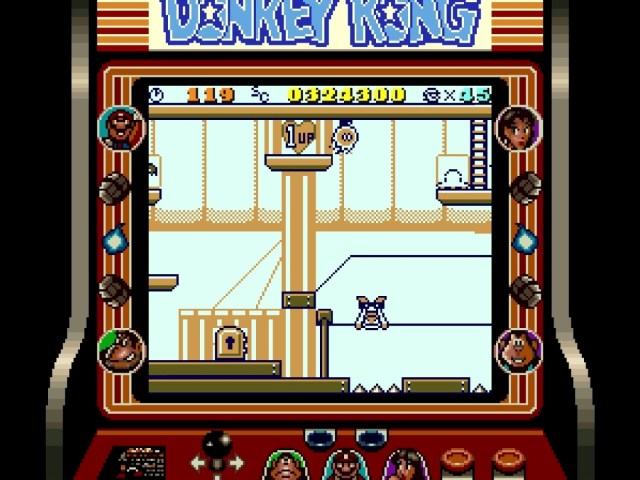
Mmm… Pizza Hut
It would actually be better if you kept your pizza grease-coated fingers off the instruction manual since one of the things Donkey Kong does well is gradually revealing all its secrets to you. The game is divided into four level slices, and between each one, you’re given a vignette with the hairy primate antagonizing the hairy plumber. Through these, Mario demonstrates some of his new moves and what can be done with them, as well as any new level mechanics that are coming up. Through this, Donkey Kong presents that it has faith in you figuring things out, which is more respectful than any game with a forced tutorial.
Mechanics are introduced gradually, giving plenty of time to come to grips with them. Some of your moves are more or less optional, but they will make for a more impressive experience. Donkey Kong shows Mario at the spriest he’s ever been. Before Super Mario 64, the little Italian was doing handstands. That little skid-stop super-jump even shows up here. Who would have guessed it would become a mainstay in Mario’s repertoire?
Each stage is largely completed by collecting a key and carrying it Super Mario 2 (USA)-style over to a locked door. It’s a straightforward goal, but some of the stages get a bit puzzling when it comes to actually getting the key to the door.
There are often enemies in your way, and this is one of the places where Donkey Kong stumbles. Some enemies you can touch, while others kill you outright. Others will allow you to pick them up and throw them, and some don’t give you the option. There are a few enemies that look like they’re making an attack, but really, they just push you. It’s a bit of a communication breakdown, and while it’s hardly game-breaking, it is a notably weaker point of the game.
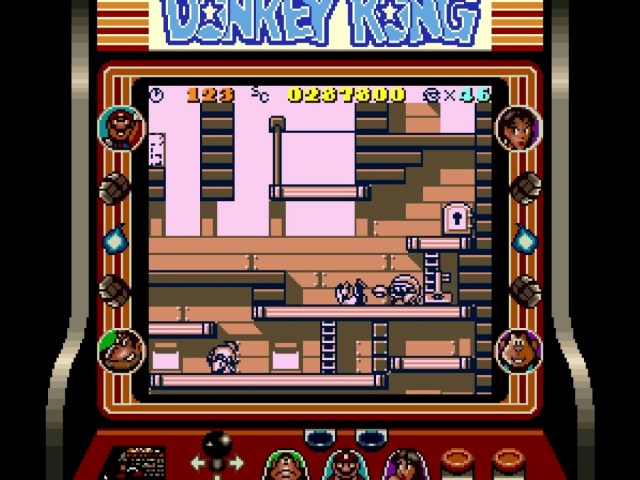
Hop-skip-jump
Every fourth level has you squaring off against the titular ape. While some of these are a matter of reaching Pauline, like in the arcade title, others have you on the offensive, hurling barrels right back at the hairy boy. Predictably, the business ape just gets back up and grabs Pauline again right up until you can put him down for good.
At the beginning of each slab of levels, you’re treated to Donkey Kong wiggling his butt as he crams his way into the door. I don’t know why I bring this up, aside from the fact that I find it extremely distracting. It makes me uncomfortable. I want to avert my eyes, but who can turn away from such a shapely posterior posturing so brazenly? It’s not just me, right?
What were we talking about? Right, yeah, Donkey Kong. It’s uh… hm.
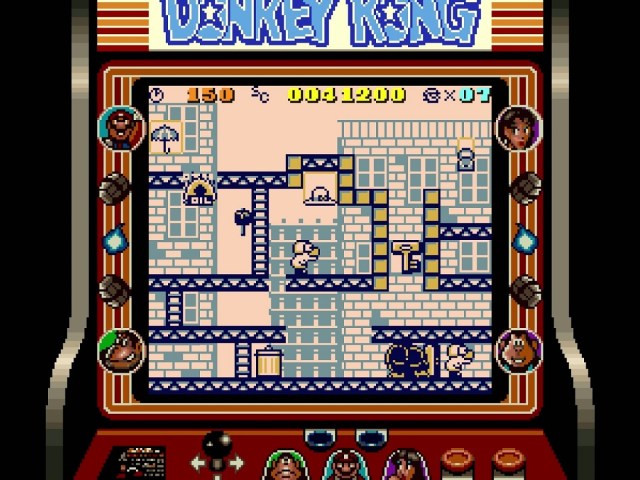
What?
I find it interesting that a number of the level designers for Donkey Kong came from the scenario group that did Mother. I’m not sure that has much bearing on how the game turned out, but it is neat that a group from a mostly unrelated title hit it out of the park with this one.
Donkey Kong was going to get a remake on the Game Boy Advance, but it quietly disappeared and was later replaced with Mario vs. Donkey Kong. While it’s obviously a follow-up, Mario vs. Donkey Kong went further into the puzzle-platformer direction, and this transition continued through to Mario vs. Donkey Kong: March of the Minis. So, the series lives on (Mario vs. Donkey Kong: Tipping Stars being the most recent in 2015); it just continued the route of finding its own identity separate from the arcade inspiration.
As for the 1994 version, however, it’s an easy one to overlook. It would have perhaps been better off called Mario vs. Donkey Kong to make the distinction clear. Even today, if you had never heard of the game and were looking through a display of Game Boy games, you might just mistake it as a stripped-down port of the arcade title when it’s anything but. Anything butt. Butt.
For other retro titles you may have missed, click right here!
